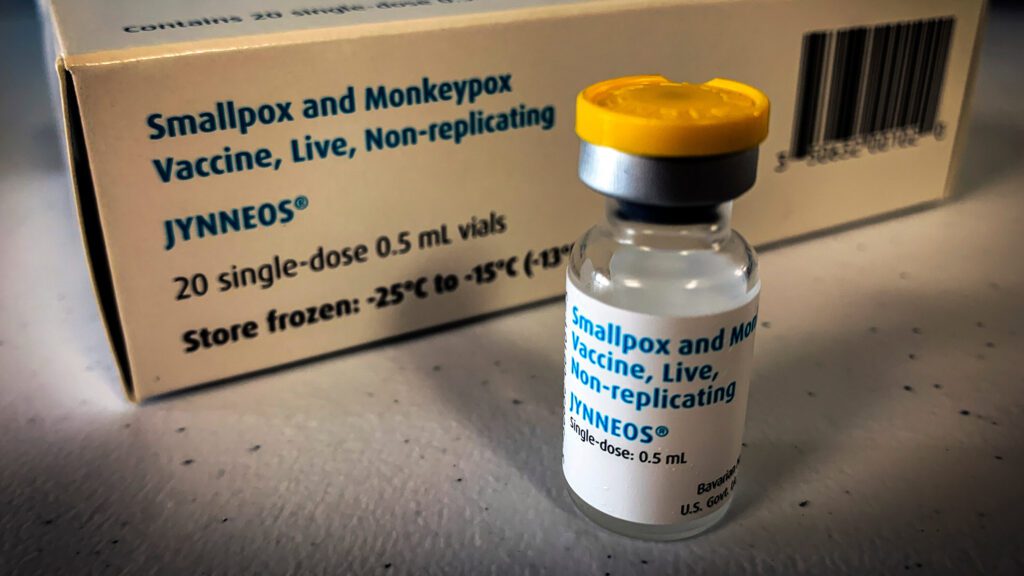Generation Black TV - Live
MONKEYPOX: Avoiding Homophobia in Reporting
The conservative campaign against LGBTQ+ rights has found a new fixation: Monkeypox
During the late Spring of 2022, the Monkeypox virus, one that causes painful lesions all over the body as well as potentially dangerous fever, began its steady increase. Whilst not notably fateful, apart from for individuals with a compromised immune system, Monkeypox cases have risen in the aftermath of COVID, causing fear and panic amongst the global population. It is important to note, however, that Monkeypox has not reached a pandemic status, but has been declared a health emergency on an international level. The rising cases are a result of easy transfer, with individuals being able to contract the virus through skin-to-skin contact (including and especially all sexual activities, genital contact included), face-to-face contact, mouth-to-skin contact and finally, mouth-to-mouth contact.
There is, unfortunately, some controversy surrounding the transfer of the virus. Early into the outbreak, the CDC (Centre for Disease Control and Prevention) stated that those who self-identify as “men who have sex with men” should be wary of contracting the virus, but stress that “anyone, regardless of sexual orientation” could spread and/or contract the disease. Thus, leaving the question, should public messaging highlight the fact that monkeypox is primarily affecting men who have sex with men?
The question is born out of the inappropriate and aggressive stigmatisation of monkeypox – reminiscent of the homophobic response to HIV/Aids in the 1980s. This then “poses a challenge to public health advocates and community leaders trying to have honest conversations about the disease and who are currently at most risk during this part of the outbreak.” It seems as though the challenge has already begun, with conservative commentators openly mocking monkeypox victims in the media, the majority of whom they are targeting being men who have sex with men, whilst blaming them for contracting the disease.
For example, American commentator Matt Walsh spoke out, stating, “Still waiting for gay men who are having random sex with strangers during Monkeypox outbreak to get lectured and scolded by public health authorities the way the rest of us did for going to grocery stores and restaurants during COVID.” This, of course, is incomparable with gay men being stigmatised and singled out for a disease that does not exclusively affect their sphere of the community and can just as easily be picked up through face-to-face contact by heterosexual individuals, including Walsh himself.

Monkeypox Vaccine © Getty Images
However, this does not, therefore, override the fact that Monkeypox is currently disproportionately affecting men who have sex with men: simply, there is a higher risk of contraction for gay men at this moment in time. And, to reduce stigmatisation and/or homophobia whilst still alerting gay men to the growing number of cases amongst them, the CDC appointed Dr Demetre Daslakis, a gay man and renowned Aids activist as the deputy coordinator of its national Monkeypox response. Following this, the agency then published guidelines for preventing Monkeypox through safer sex that included an illustration of two men in bed together, consequently highlighting that these individuals should be particularly cautious. Additionally, the article highlighted to the general public that people should limit their number of sexual partners whilst Monkeypox is an international concern, avoid anonymous hook-ups and wash fetish gear and sex toys regularly.
Some individuals, such as AIDS activist and gay man Mark. S. King, believe that cautioning gay men against the threat of Monkeypox is a positive thing, stating, “Fast Forward to 2022 [In comparison to the lack of information spread in the 1980s regarding the danger of HIV], where we are at least getting all of this great, explicit information out about Monkeypox so that gay men can protect themselves. I consider that progress.” However, not everyone in the queer community agrees on how to talk about the outbreak. For example, prominent rights group Glaad has expressed concern at framing monkeypox as a disease that primarily affects men who have sex with men in guidance issued to the media. They believe that framing monkeypox as a disease within the gay community will discourage other people from educating themselves on prevention:
“If history has shown us anything, it would show us that a communicable disease like this doesn’t stay within one community. Stigma drives fear, and fear then becomes resistance to public health and stopping the spread of the disease,” said Glaad in a statement.
Therefore, it appears to be an issue about whether and how to discuss if gay men should alter their sexual behaviours during the outbreak, and if it is necessary to place emphasis on warning this sphere of the community. Suggesting that gay men change their sexual behaviour despite “all of the ways that it could be spread” (for example, if you kiss someone who has an active case of Monkeypox), seems almost like an attack, rather than a helping hand. But, it is a nuanced and complex discussion because, as King puts it, “We’ve learned through the last 40 years of HIV that moral judgements only help HIV. Moral judgements shame the people who are most at risk, which leads to people going underground, not admitting what their behaviours are, and not wanting to talk about the risks.”


